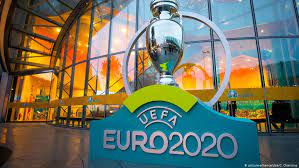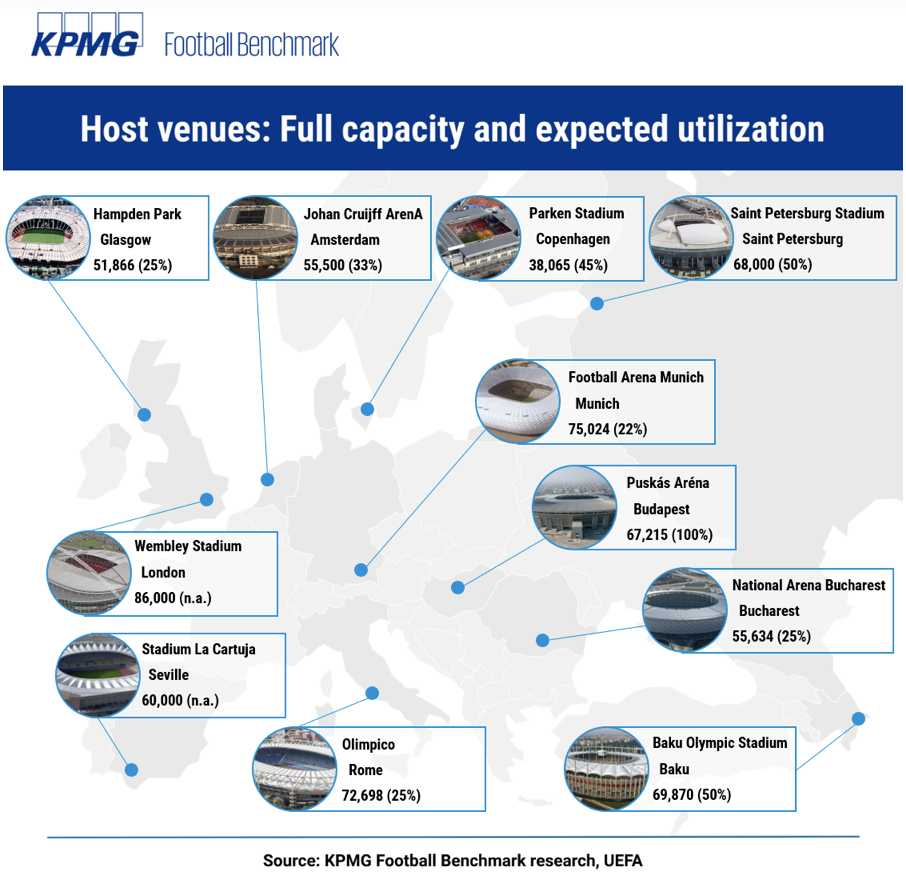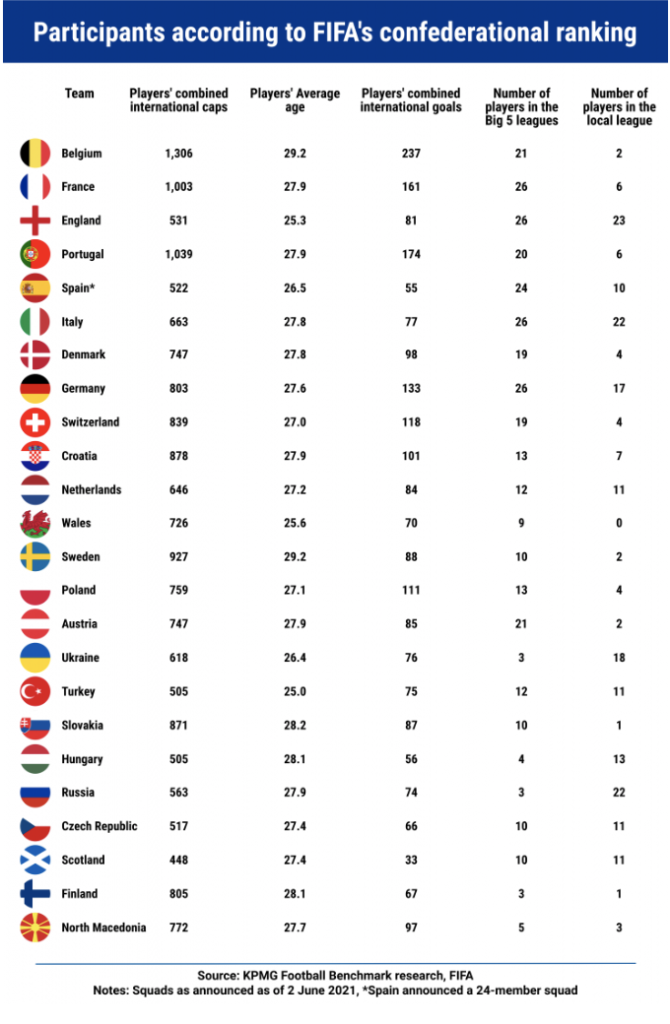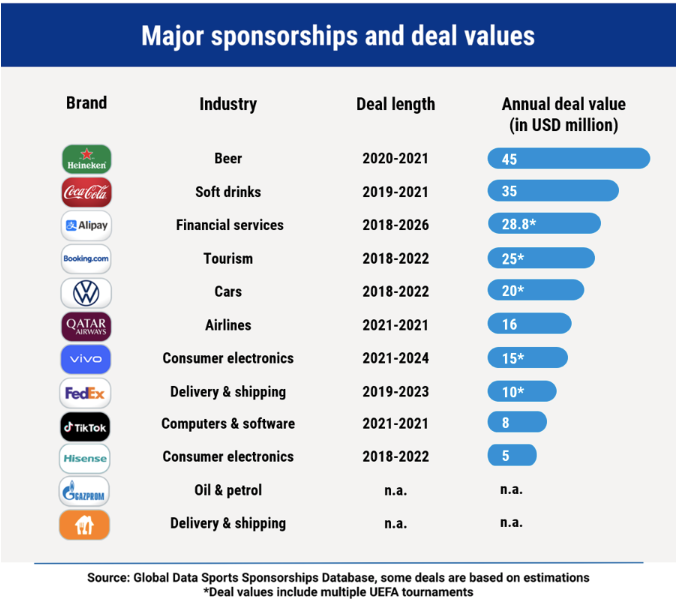By Paul Nicholson
June 11 – Euro 2020 is coming at a pivotal time, both in Europe’s fight against the pandemic that has changed the world we all live in, as well as in a changing football world desperate to find stability with both internal and external challenges to a previously comfortable and accepted order of things.
The KPMG Football Benchmark has taken stock of the metrics and economics of the tournament and how they relate to a competition that will likely come to symbolise a period of great hope in our social and football futures.
Euro 2020 was originally envisaged as an expanded competition with 11 city hosts (rather than one country hosting) under the slogan ‘Building Bridges’. That catchline today takes on multiple meanings and significance as Euro 2020 increasingly reflects a much wider social purpose, hope and intent to move forward.
Legendary Liverpool manager once said: “Some people believe footballis a matter of life and death, I am very disappointed with that attitude. I can assure you it is much, much more important than that.” It is a sentiment every footballer, fan and administrator understands, perhaps in these pandemic times more clearly than ever before.
Euro 2020 will be remembered in football history as an historic event, perhaps signifying a turning point in the war on the pandemic in Europe, but how far does it take us on that return journey to the world we once lived in?
Hosting spectators has been a key demand of UEFA, but most venues will not at full capacity.
“Hungary has been the only country to allow for a full house in the 67k-seat Puskás Aréna, with strict stadium entry requirements, followed by Baku and Saint Petersburg, who confirmed their venue capacity at around 50%, both letting approximately 34k fans attend games. The other host cities are planning to operate at lower capacity, with spectators at around 15-20k, in most cases subject to a possible increase as circumstances may permit,” says the Football Benchmark report.
“Interestingly, six countries – Azerbaijan, Denmark, Hungary, Romania, Russia and Scotland – have never staged a European Championship match previously, while of the 11 selected stadia, only two have hosted a Euro tournament match before: the Stadio Olimpico in Rome and the Johan Cruyff Arena in Amsterdam, not counting the former Wembley Stadium.”
Looking at the 24 teams that have qualified, Finland and North Macedonia will make their Euro debut, and 19 countries are returning from the 2016 edition. “Germany, along with defending European champions Portugal and world champions France, boast having qualified for a record 13thstraight European Championship. With the exception of Romania and Azerbaijan, 9 of the 11 host countries managed to qualify for the tournament,” says the report.
Number counting
Football is not just about football but is inevitably about money as well. At Euro 2020 each team receives a participation fee of €9.25 million, with further performance and participation bonuses, and the winner earning a maximum €34 million.
“Globally, over 2 billion viewers are expected to follow the live matches, with individual games projected to attract an audience of around 140-150 million viewers. The final of the most recent European Championship, with Portugal beating France in Paris in 2016, averaged 284 million viewers, and was the second most viewed game in the tournament’s history. The record is held by the Euro 2012 final (Spain defending their title with a 4–0 win over Italy in Kyiv,) which was watched by a global audience of around 300 million,” says the report.
Broadcast rights fees see ARD and ZDF televising almost all games live in Germany in a €150 million deal that also covers internet and social media platforms. BBC and ITV in the UK are paying £140 million.
If this sounds like the old world reasserting itself, the sponsorship equation, says the report, shows “some new elements. The list of the 12 main sponsors—Alipay, Booking.com, Coca-Cola, FedEx, Heineken, Hisense, Qatar Airways, SOCAR, Takeaway.com, Tik Tok, vivo and Volkswagen—features only two brands, Hisense and Coca-Cola, who remained from the 2016 register.
“In perusing the chart that follows, which lists the EURO 2020 sponsors, it is important to note that several deal values extend over multiple tournaments. Alipay, for example, signed an 8-year partnership, which includes all UEFA national team football competitions from which includes all UEFA national team football competitions from 2018 to 2026.”
The next month of football will show us how much a historical page turn (socially and economically) we are living through.
Contact the writer of this story at moc.l1744805643labto1744805643ofdlr1744805643owedi1744805643sni@n1744805643osloh1744805643cin.l1744805643uap1744805643




